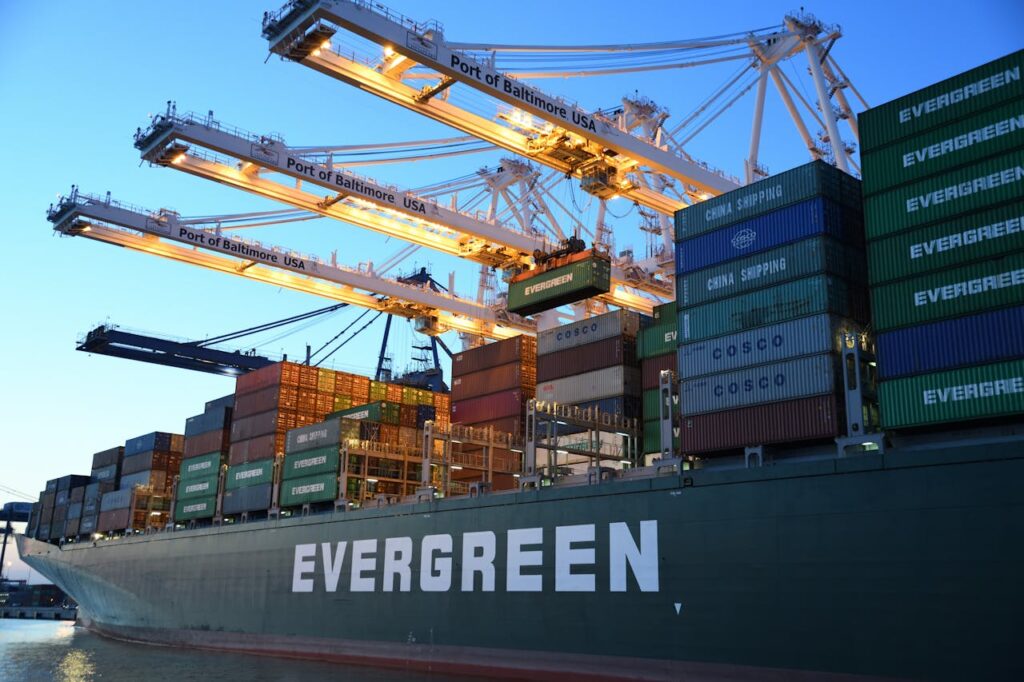Accelerating Deliveries While Reducing Emissions Through the Use of AI in Logistics

Accelerating Deliveries While Reducing Emissions Through the Use of AI in Logistics
Speed and efficiency are not only desirable qualities in today’s society, which is characterized by same-day delivery and worldwide supply chains; rather, they were anticipated. However, behind the scenes, the logistics business is confronted with a number of complicated issues, including increasing expectations for delivery, worries about the environment, road congestion, and limitations on resources. As it turns out, the solution is not just comprised of more vehicles or larger facilities. It’s a more intelligent system. Enter artificial intelligence-powered logistics, a game-changing strategy that is transforming the way things flow from warehouses to doorsteps, therefore accelerating delivery and making operations more environmentally friendly.
Better routing results in more expedient delivery times.
The planning of delivery routes has always been the responsibility of experienced managers who depend on statistics on traffic, historical patterns, and sometimes even their own intuition. This technique, despite its effectiveness, was not always able to keep up with real-time changes on the ground, such as unforeseen weather occurrences, road closures, or spikes in orders placed at the last minute.
This is changed by artificial intelligence, which analyzes massive quantities of data in real time, including traffic patterns, weather predictions, consumer locations, and even package sizes. The use of artificial intelligence allows for the creation of dynamic distribution strategies that are able to react in real time.
What is the end result? As a result of the reduction in the amount of time that drivers are stopped in traffic, delivery times become more predictable, and clients get their items sooner, sometimes even better than expected.
Improving Efficiency in Order to Decrease Emissions
The environmental consequence of having more cars on the road cannot be overlooked, despite the fact that faster delivery are a wonderful thing. AI is also helpful in this regard. When routes are optimized and shipments are consolidated, it minimizes the number of kilometers traveled, which in turn reduces the amount of fuel used and the amount of carbon dioxide emissions.
In addition to routing, artificial intelligence may assist logistics organizations in selecting the kind of vehicle to send. For example, it can assist in the dispatching of electric vans in urban areas or in the grouping of deliveries to reduce the number of stops. Over the course of thousands of daily travels, these more intelligent selections result in huge environmental savings.
Enhanced Demand Forecasting Helps to Maintain Shelves, There are more applications for stocked AI besides delivery vehicles and traffic data. At the level of the warehouse, it has one of the most significant implications. For the purpose of more precisely forecasting demand, predictive algorithms examine shopping tendencies, seasonality, local events, and even conversation on social media platforms among other factors.
Warehouses are able to store the appropriate quantity of items closer to the locations where they will be required, which results in a reduction in the number of last-minute shipments coming from distant centers. While ensuring that items are accessible at the precise moment that consumers want them, this strategy reduces the distances that need to be transported, shortens the delivery windows, and contributes to a reduction in carbon footprints.
Tracking in Real Time and a Happier Customer Experience
Every one of us has experienced the aggravation that comes with waiting for a delivery that does not arrive on time. Logistics systems that are driven by artificial intelligence provide real-time tracking updates, anticipated arrival timings, and even quick alarms in the event that a delay is likely to occur.
When it comes to companies, this openness helps to develop trust and enhances the pleasure of their customers. In the context of logistics teams, this indicates that possible issues, such as missed delivery windows or interruptions caused by weather, may be resolved before they have an effect on the consumer.
The Automation of Warehouses: Achieving Speed and Sustainability
In contemporary warehouses, artificial intelligence is also used to instruct automated robots and intelligent conveyor systems to sort, select, and pack products in a more efficient manner. Businesses are able to guarantee speedier shipment by minimizing the amount of time it takes to process orders, which allows them to avoid overworking their human workforce.
Because of this efficiency, energy is also saved. When processes are optimized, equipment and lights are only utilized where they are required, which results in a reduction in both power consumption and operating expenses.
What Lies Ahead: Going Abroad Beyond Efficiency
The emphasis in the field of artificial intelligence in logistics is changing from merely making operations quicker and cheaper to making them smarter and more sustainable as the field continues to evolve. When artificial intelligence is developed in the future, it will be able to help cities manage delivery congestion, coordinate drone deliveries, and recommend new warehouse sites based on altering client demand.
The combination of speed and sustainability is not just beneficial to business; it is also becoming an important component of responsible international trade.
Logistics that is driven by artificial intelligence is not merely an improvement in technology; rather, it is a new way of thinking about how we transport things all over the globe. Artificial intelligence enables logistics organizations to fulfill the increased demand for convenience without compromising their commitment to sustainability by efficiently balancing quicker delivery with reduced emissions.
The promise of artificial intelligence in the field of logistics is not limited to the use of algorithms and data; rather, it is about the development of a supply chain that is more beneficial to companies, customers, and the environment than it has ever been before.




